Now fifty years after my first brochure on the subject, I present before the scholars my latest book entitled Theory and Practice of Muslim State in India. Its raison d’etre is that in my earlier endeavours, no attempt had been made to trace the relationship between the injunctions contained in Islamic religious literature and the attitudes and actions of Muslim Kings and conquerors. Ordinarily, historians writing on medieval Indian history refer to Muslim chronicles and histories as their only source materials. The study of Islamic scriptural literature like the Quran, the Hadis, the Sunnah of the Prophet and the Shariat is ignored in historical studies as it is considered to belong to the domain of religion rather than to that of history. However, the study of this literature reveals that Muslim invaders and rulers were not cruel or fanatical by themselves as such, but they became so by pursuing the malevolent ideology as projected in the Quran and the Hadis against non-Muslims. Muslim invaders and rulers of India belonged to different races and different countries. They belonged to different sects. Their rule extended for about a thousand years in various parts of the country. Their chronicles are written in different languages. But their behaviour follows a uniform pattern. Even those rulers and nobles who had converted to Islam from Hindusim, considered their bloody acts against Hindus as acts of righteousness. The source of the uniformity of action is the Quran, the Hadis and the Sunnah which they quote with pride. These scriptures do not belong only to the past. They are in operation even now. Pious Muslims in all places and at all times seek or provoke Jihad with an appeal to Islamic scriptures. Regular wars, terrorist activities, and communal riots (India) are all called and fought in the spirit of Jihad. Hence the importance of both the theory and practice in the study of Muslim state in India. The theory part is traced to the Quran, the Hadis and the Sunnah of the Prophet, the practicepart to the principal activities of Muslim rulers in India as narrated by their chroniclers. Muslim state in India has not ceased to exist even in modern times and Indian Muslims on account of Islamic laws and separate identity almost form a separate state within the Indian State.
Theory and Practice of Muslim State in India
by K.S. Lal
$20.70
$23.00
In stock
Free & Quick Delivery Worldwide
All orders amounting to US$ 50 or more qualify for Free Delivery Worldwide. For orders less than US$ 50, we offer Standard Delivery at $14 per book.
ABOUT THE AUTHOR K.S. Lal
Professor Kishori Saran Lal (b. 1920) took his doctorate in Medieval Indian History from the University of Allahabad in 1945. Starting as a lecturer in the same University, he served in the Madhya Pradesh Education Service from 1945 to 1963 and taught at Government Colleges in Nagpur, Jabalpur and Bhopal. He was Reader in the University of Delhi for ten years (1963-73) and, for the next ten years, Professor and Head of the Department of History in the University of Jodhpur (1973-79) and the University of Hyderabad (1979-83). He has participated in many seminars and conferences, national and international, in India and abroad. In Madhya Pradesh, he was Secretary of the Madhya Pradesh Itihasa Parishad and Convener of the Regional Records Survey Committee. He presided over the Medieval History Section of the Indian History Congress in 1958, Punjab History Congress in 1975, Rajasthan History Congress in 1978, and Indian History and Culture Society in 1984. In 1977 he chaired a session at the Seventh International Conference of the Association of Historians of Asia, held in Bangkok. He has published a number of articles and monographs on Medieval Indian History. All his books have met a world-wide acclaim; they have been noticed in learned journals in London, Leiden, Chicago, Leipzig, Rome and other centres of learning.
reviews
0 in total
Review by Anonymous
Be the first to review “Theory and Practice of Muslim State in India” Cancel reply
You must be logged in to post a review.
Bibliographic information
Title
Theory and Practice of Muslim State in India
Author
Edition
1st ed.
Publisher
ISBN
8186471723
Length
xvi+394p., Notes; Bibliography; Index; 23cm.
Subjects
more by K.S. Lal see more
similar bookssee more
Signs of Miraculousness
$21.60
$24.00

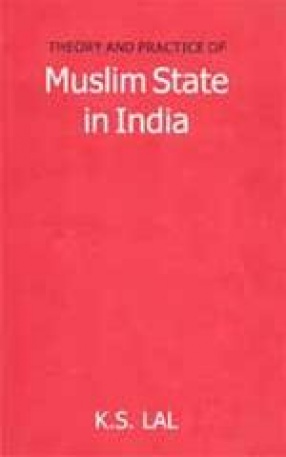
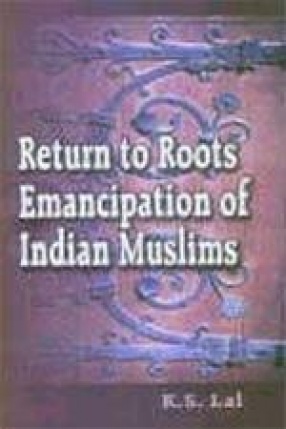
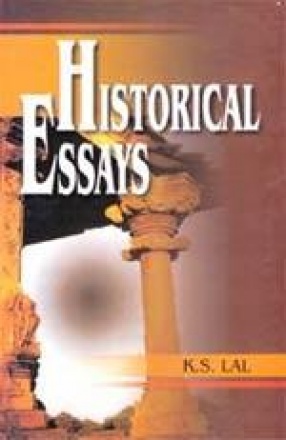
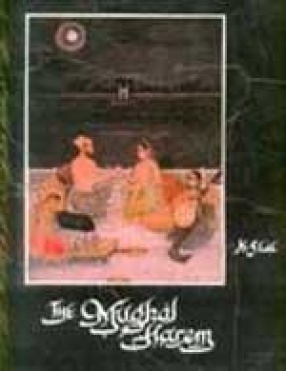
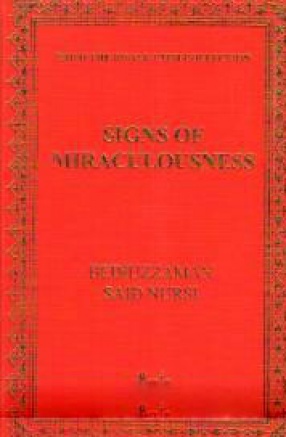

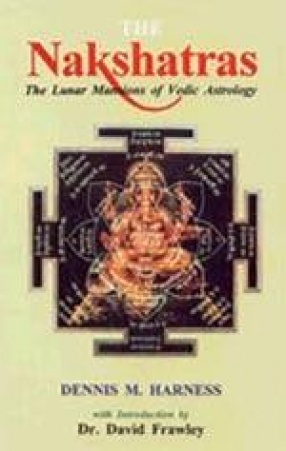
There are no reviews yet.